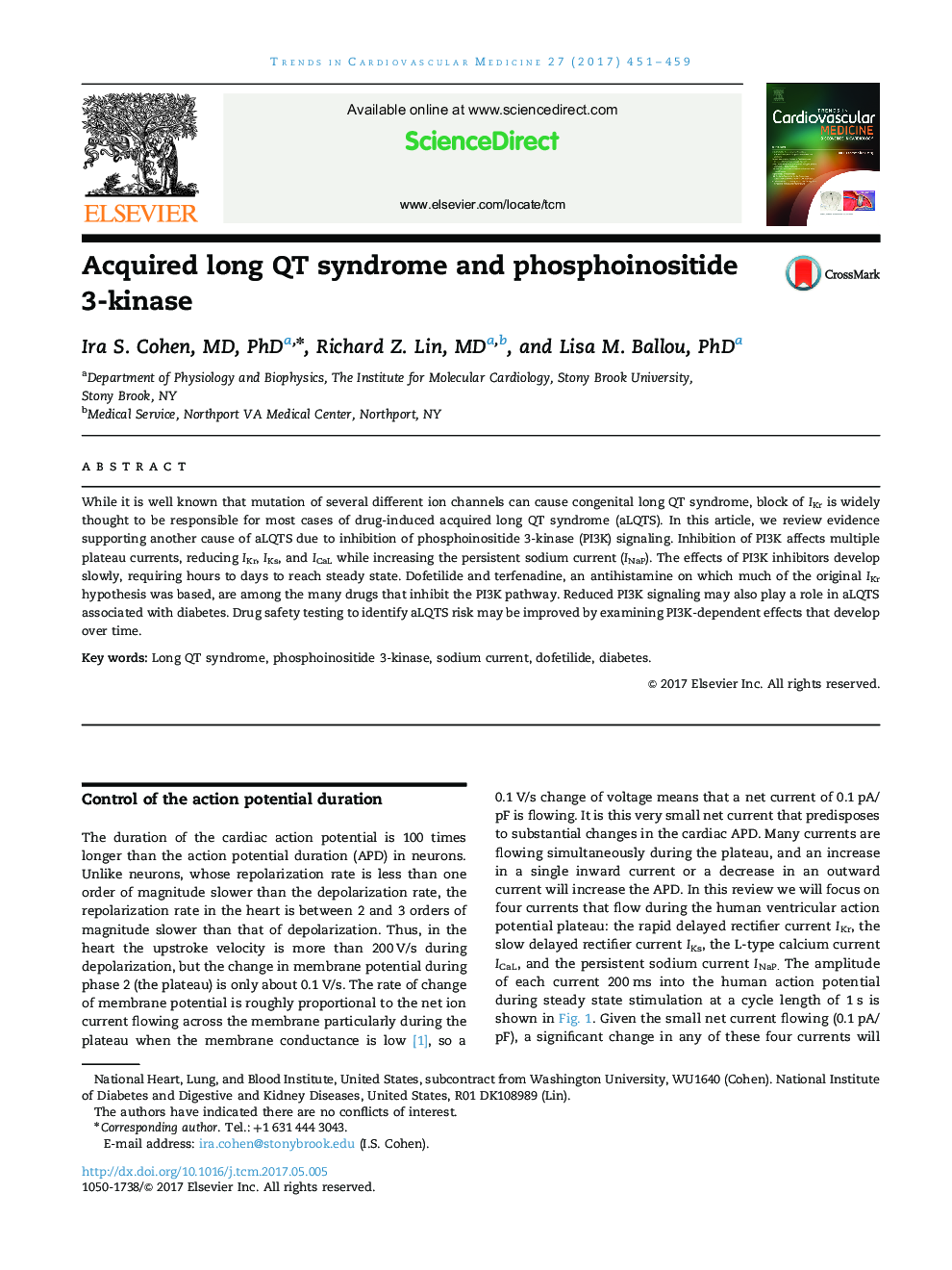| Article ID | Journal | Published Year | Pages | File Type |
|---|---|---|---|---|
| 5622264 | Trends in Cardiovascular Medicine | 2017 | 9 Pages |
While it is well known that mutation of several different ion channels can cause congenital long QT syndrome, block of IKr is widely thought to be responsible for most cases of drug-induced acquired long QT syndrome (aLQTS). In this article, we review evidence supporting another cause of aLQTS due to inhibition of phosphoinositide 3-kinase (PI3K) signaling. Inhibition of PI3K affects multiple plateau currents, reducing IKr, IKs, and ICaL while increasing the persistent sodium current (INaP). The effects of PI3K inhibitors develop slowly, requiring hours to days to reach steady state. Dofetilide and terfenadine, an antihistamine on which much of the original IKr hypothesis was based, are among the many drugs that inhibit the PI3K pathway. Reduced PI3K signaling may also play a role in aLQTS associated with diabetes. Drug safety testing to identify aLQTS risk may be improved by examining PI3K-dependent effects that develop over time.
